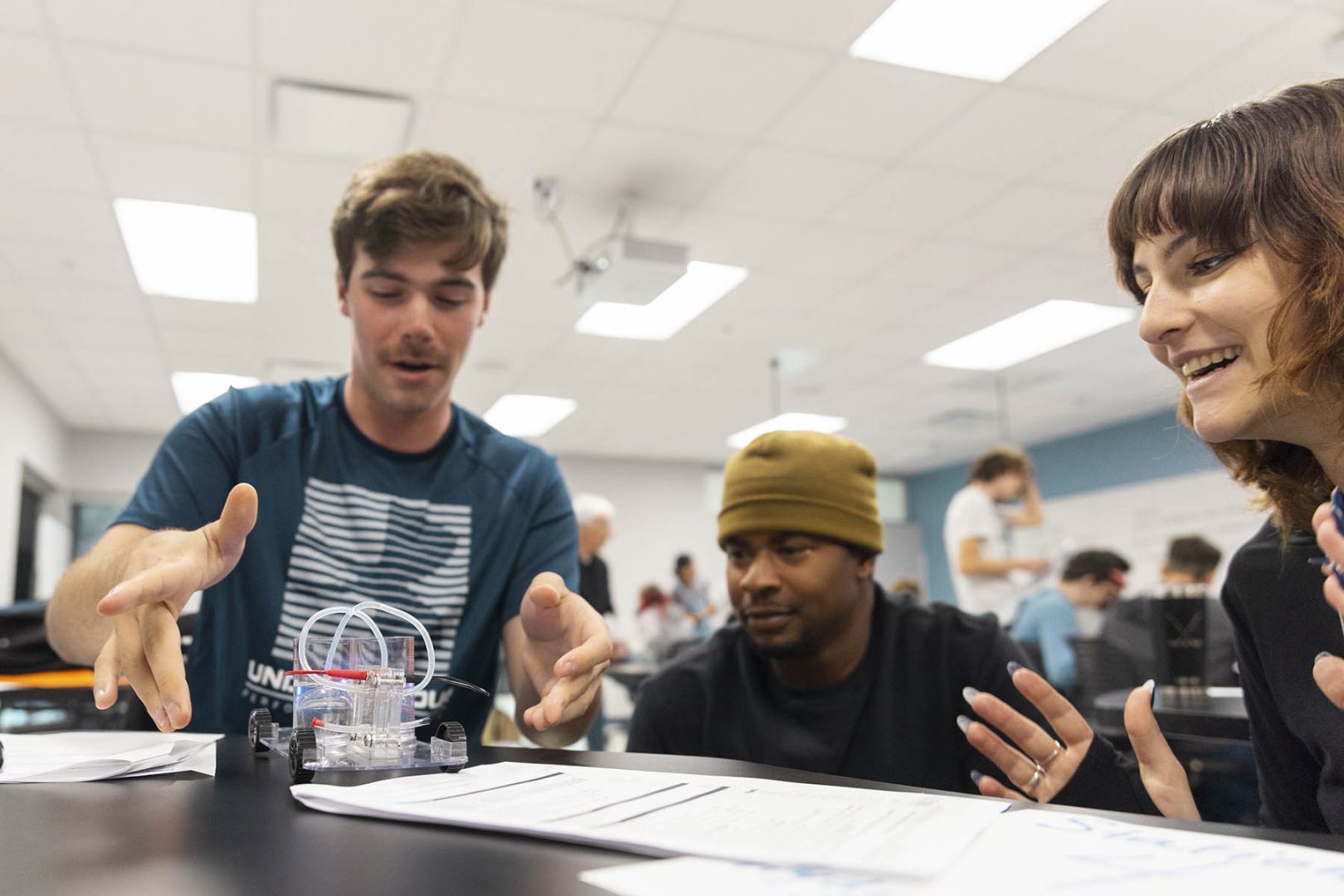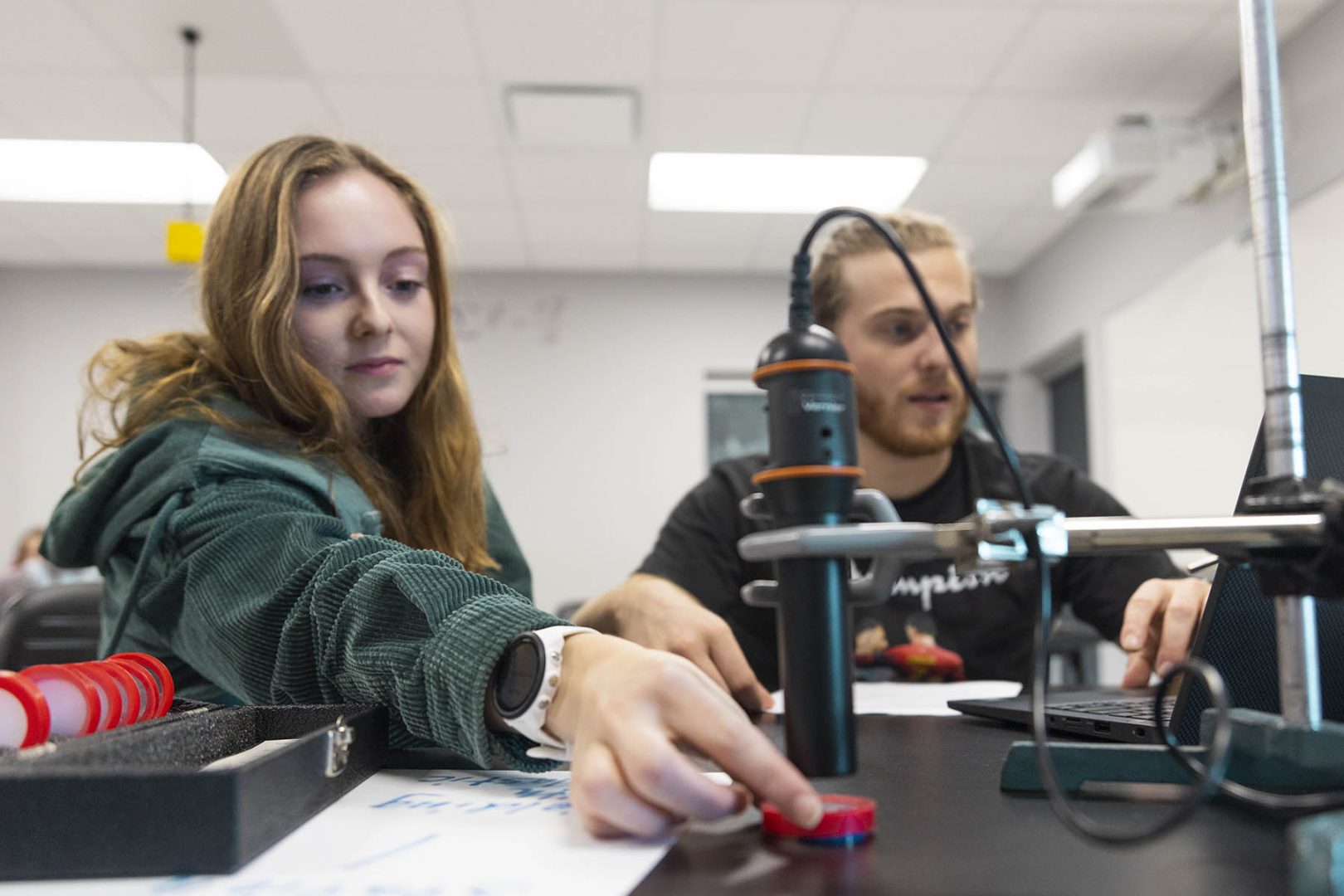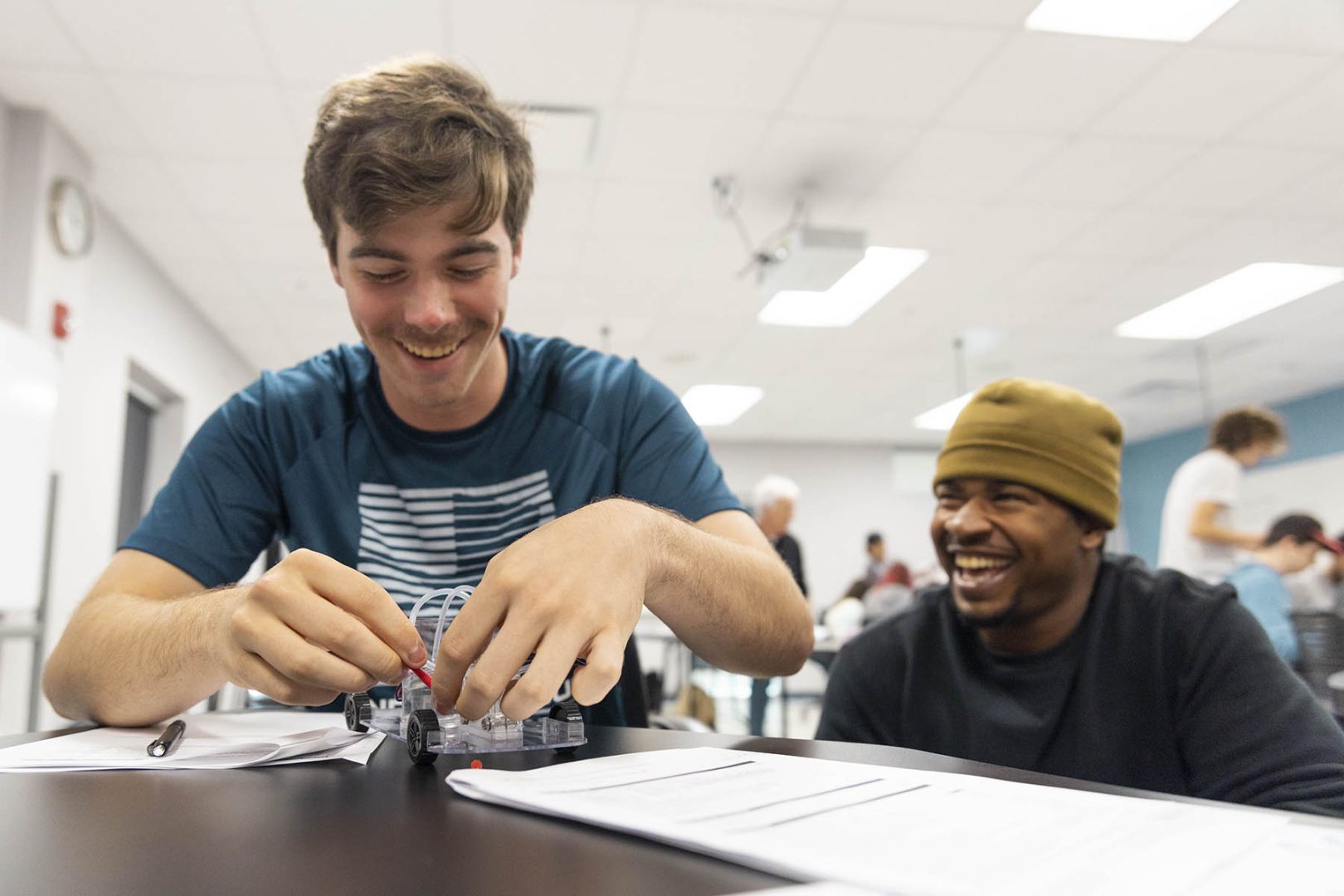Projected on a whiteboard in the front of Kathleen Blackett’s classroom is a map of the United States. It depicts every nuclear waste storage site in the country. There are currently 80 such sites, most of them east of the Mississippi River. Three are in Florida, including one at Crystal River, about 80 miles north of St. Petersburg.
For years, the sites have generated controversy, from storage issues to security concerns. And questions still persist.
Blackett, a visiting assistant professor of physics at Eckerd College, is teaching Physics for Future Presidents, one of more than 60 Winter Term courses offered by the College.
“We start with the premise that our students are future world leaders who will need to make important decisions involving terrorism, energy sources, radioactivity, nuclear weapons, spy planes, NASA missions and more. This class gives students a high-level overview of the physics involved in these hotly debated topics,” Blackett explains.
“In addition,” she notes, “students participate in hands-on activities—including determining the half-life of a radioactive isotope, extracting hydrogen from water, determining the speed of light using a microwave oven, and more.
“We study how power plants work,” says Blackett, who has a Ph.D. in experimental particle physics. “How do you get from coal to electricity that comes out of the wall socket? Most people don’t know.” Which is why her class traveled recently to tour the Big Bend Power Station on Tampa Bay near Apollo Beach. The facility is currently transitioning from four coal-fired units to a combination of coal, natural gas and solar power.
To bring her message home, Blackett sometimes uses vivid historical events. “We talked about the terrorist attacks on 9/11 and how the buildings did not come down because planes hit them,” she explains. “They came down because those planes were full of jet fuel. The buildings were well made. But the steel inside was weakened by the intense heat from the burning jet fuel. We calculated both the kinetic energy of a plane hitting one of the buildings and the chemical energy stored in a full tank of jet fuel. The latter was clearly much greater and the reason why the buildings went down.”
The idea for the class originated at the University of California, Berkeley, where Physics Professor Emeritus Richard A. Muller, Ph.D., taught a course by the same name. “He wanted to make physics interesting for students and also include events in the headlines and the physics behind it,” Blackett says. “Professor Muller wrote a mainstream book titled Physics for Future Presidents. After reading it, I thought that I’d really like to teach a Physics for Future Presidents class. Last year I used the book for a seminar class, and this year I had the opportunity to teach the material in a Winter Term course.
“We also cover a lot about nuclear energy, nuclear power plants and nuclear weapons,” Blackett says. “How a nuclear power plant works, the difference between a nuclear bomb and a radiological weapon (dirty bomb). And nuclear waste … what type of nuclear waste we should be concerned about and what type we shouldn’t.
“If you are defending your stance on a topic that is in the news,” she adds, “your argument has much more credibility if you have the scientific knowledge to back it up. For instance, if someone tells you that the future is solar cars, you can quite confidently disagree if you are familiar with the physics. The sun only gives us about one horsepower per square meter, and the average automobile uses about 200 horsepower. Knowing the science behind the headlines will surely make our leaders better decision-makers.”
In addition to teaching at Eckerd College, Blackett is a content manager at Expert TA and volunteers as a solar system ambassador.
Eli Cummins-Mikkalson, a junior psychology student from Portland, Oregon, says he’s always enjoyed physics but hadn’t taken a physics class at Eckerd until now. “With Winter Term, you have the freedom to take classes you wouldn’t take otherwise,” he explains. “ What I like about this class is that you can get an understanding of how we get electricity, how nuclear bombs work and the effects of radiation. The course also tackles misconceptions, so you get a better understanding of the headlines, and you get a big-picture view of physics.”
Eli’s first official act if he were elected president of the United States? “I would spend less money on the military,” he answers, “and a lot more on the Department of Energy and NASA.”















